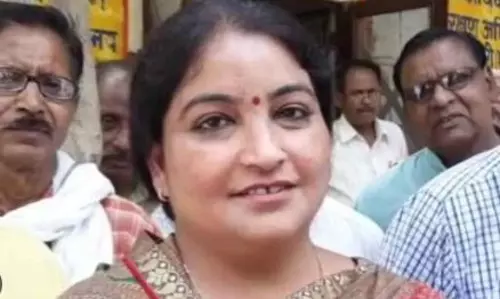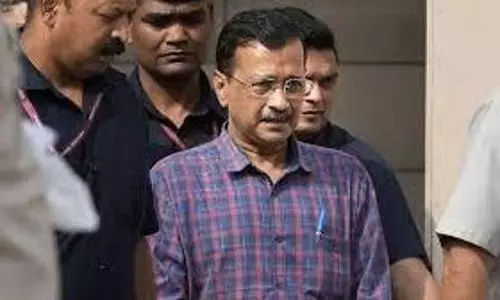
Supreme Court's intervention not to be delayed
text_fieldsThe country is seething in rage. Each day is witnessing the spread of the anti-Citizenship Amendment Bill (CAA) to new regions with greater force. The Central government, duty-bound to address and solve the issues raised in the mass demonstrations to protect the basic values of our constitution which forms the soul of the nation, is evidently taking a more adamant, and violent course. That stance was reflected also in the statement of the BJP chief JP Nadda the other day, that the government would implement not only the CAA but also the National Register of Citizens (NRC).
In Uttar Pradesh and Karnataka, both ruled by the BJP, the police have fired shots at protesters and eight people were killed by end of Friday. The police in Karnataka have arrested, in an apparent display of defiance, mediapersons with an aim of preventing flow of free and fair news. When the governments are pushing the country to anarchy using strong-arm methods, the Supreme Court has to wake up and act. If the judges of upper judiciary do not see and hear the agitations initiated by students, the new generations will start seeing the existing judicial system as irrelevant.
In fact, the least of the democratic decorum expected of home minister Amit Shah is to absorb the soul of the demonstrations across the country and apologise for having tried to divide the citizenry - and quit the home ministry. But then to expect such propriety from a government that bears all signs of a dictatorship would be churlish. What is more, when the stir was intensying, the prime minister found it important to look at the attire of the protesters! Instead of becoming ready to solve the issues, he is becoming an advocate of lies against the students leading the agitation and against the Congress.
Chanakya had advised Chandragupta Maurya that one who expects to get justice from rulers without honesty, is a fool. But when rulers do not show any sense of justice, the highest court's responsibiity will become all the greater. It will not be enough to go by the technicality of law, it will also be necessary to ensure that justice is precisely dispensed with. The protection of law and constitution is vested with the highest court.
In exigencies, courts have the power to invoke Article 32 in public interest and file cases suo motu. On several occasions in the country, the Supreme Court and high courts have exercised that power. But, without need for that recourse, the issues of CAA and the police excesses against the students had come up before the Supreme Court in light of the protests. But the court's response to them, albeit fulfulling the technical requirements, apparently glossed over the demands of the situation. After deciding to issues notice to the Centre and Attorney General on the petitions against CAA, Chief Justice SA Bobde heard in particular the contentions of BJP leader Advocate Aswani Kumar Upadhyaya and even suggested that country-wide awareness campaign should be conducted about the law.
On hearing the suggestion - which delighted the Centre – Advocate General KK Venugopal promptly assured the court that the government will accept it as such. Instead of taking the cases urgently, the Supreme Court adjourned for the winter vacation and posted them for hearing on 22 January. It was in this context that Yogendra Yadav and student leaders had to state that the protests will have to be continued till 22 January. The words of those including Yogendra Yadav reflect a feeling that even as the country is blazing in protests, the court is affected by the cold.
The mention - during the hearing on the petition demanding judicial enquiry about the inhuman suppression of students - that the court would be prepared to hear the students' plea if the protests were suspended, should also be termed as inappropriate. The government interpreted it as a tacit endorsement of the police raj ruling the roos in the country and construed it as a vindication of intensifying police heavy-handedness. The Supreme Court was passing the buck - of instituting judicial committee for the probes - to the discretion of high courts, w ithout blaming the police rampage in campuses of Jamia Millia and Aligarh.
Without considering any of the demands of the students who approached the High Court in line with the Supreme Court directive, the Delhi High Court was seen issuing notice to the Centre and the police, and deferring the case to 4th February. The lawyers reacted to the Chief Justice's bench with calls of shame. Although the Allahabad High Court agreed to hear the case on 2nd January, it refused to issue a general order of protection for the students from police overaction. In the light of both the high courts failing to secure justice, the apex courts which has a record of functioning on Saturday, Sunday and holidays and even at midnight, should skip the winter holidays and sit to ensure justice. If this institution also falls a prey to fear of the executive, it will pave the way to total anarchy. This country does not want that.























